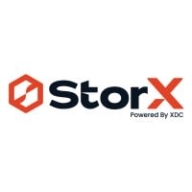

NetApp Cloud Volumes Service for Google Cloud and StorX are competitors in the storage solutions category, each with distinct strengths. Based on pricing and customer support, NetApp has the upper hand, while StorX provides superior features that can justify its cost.
Features: NetApp Cloud Volumes Service for Google Cloud integrates seamlessly with Google's ecosystem, offering robust backup and recovery options. It also provides easy scalability and comprehensive data management tools. StorX, with its decentralized structure, offers enhanced security and data control, appealing to businesses that prioritize these aspects. It also provides flexibility through distributed storage networks and impressive data redundancy features.
Ease of Deployment and Customer Service: NetApp offers straightforward integration with Google Cloud, supported by extensive documentation and responsive customer support. Its deployment process is user-friendly, making it accessible to a wider range of users. StorX, on the other hand, has a more complex deployment process due to its decentralized model, requiring greater technical expertise. Its customer service is competent but less accessible compared to NetApp, potentially posing challenges for users needing immediate assistance.
Pricing and ROI: NetApp Cloud Volumes Service for Google Cloud features a competitive pricing structure with lower setup costs, ensuring a favorable ROI over time. This makes it attractive for businesses looking for cost-effectiveness. StorX, although it may have higher initial costs, offers distinctive long-term ROI benefits. Its cost-saving potential is driven by decentralization, which is appealing for organizations valuing data ownership and security.
NetApp® Cloud Volumes for Google Cloud is a fully managed or self-managed file service that is integrated into Google Cloud with the multiprotocol support, performance, and availability required to run business-critical applications. It is designed to provide massively parallel shared access to thousands of Google Compute Engine and Google Kubernetes Engine instances, enabling your applications to achieve high levels of aggregate throughput and IOPS with consistent low latencies.
Use cases. Customers can use the service to migrate existing enterprise applications to Google Cloud. Other use cases include hybrid deployments, multicloud mobility, big data analytics, web serving and content management, application development and testing, media and entertainment workflows, database backups, container storage, and more.
Features. Multiple performance tiers, standard file interfaces, advanced data management, metered service, fully managed service, native service experience, integrated support, and integrated billing.
For more information:
NetApp: https://cloud.netapp.com/cloud-volumes-service-for-gcp
Google: https://cloud.google.com/netapp
StorX offers decentralized cloud storage, empowering businesses to securely store and manage data. It provides transparency and high scalability to adapt to different user requirements.
StorX is designed to address the demand for reliable and privacy-centric storage solutions. By decentralizing data, it ensures robust security and accessibility, breaking away from traditional centralized architectures. With its innovative approach, StorX caters to entities seeking flexible and cost-efficient storage options.
What are StorX's key features?In healthcare, StorX is implemented to store sensitive patient records securely. In finance, it handles transaction data to ensure compliance and protection against breaches. E-commerce uses StorX to manage vast amounts of product and customer data while maintaining speed and efficiency.
We monitor all Cloud Storage reviews to prevent fraudulent reviews and keep review quality high. We do not post reviews by company employees or direct competitors. We validate each review for authenticity via cross-reference with LinkedIn, and personal follow-up with the reviewer when necessary.